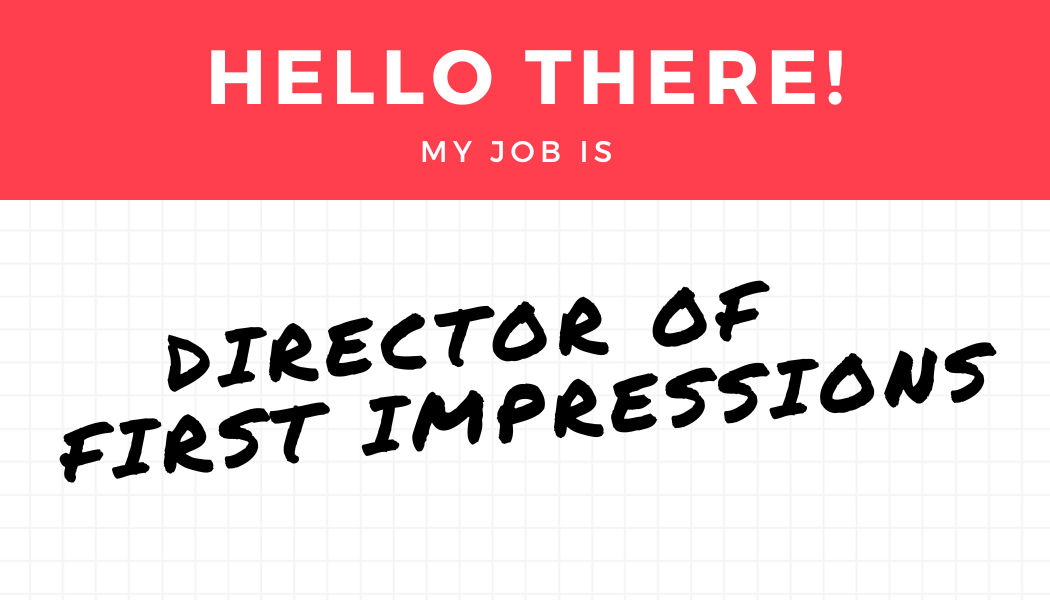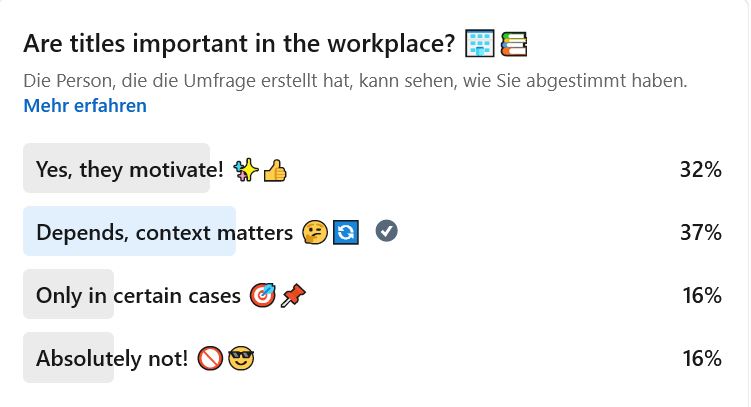
What’s in a name – are job titles still relevant?
We spend so much of our adult life at work, that it inevitably becomes part of our identity – whether we like it or not. Job titles can act as identity badges, telling colleagues, clients, and recruiters what you do. Even in private contexts you are likely to encounter the question “what do you do (for work)?” when meeting new people.

But in recent years there has been more and more discussion about standardised job titles. Startups and flat hierarchies often declare them as irrelevant within their given structure. Others have argued that we should use more individualistic or creative titles (think director of first impressions, blogging rockstar or sales ninja). There is also a growing pressure to be a generalist within your given field, able to adapt at the drop of a hat – a type of flexibility that is more difficult to capture in a title.
Are job titles a relic of the past? Or do they still have value, within the workplace and outside of it?
Defining purpose and hierarchy
So, what’s the deal with job titles? Maybe its best to begin by thinking about the purpose of a job title: they are descriptors meant to summarise your position in your organisation.
In the workplace it designates your place within the hierarchy. It can help to clarify structures of accountability and what your relationship to your co-workers is – crucial for collaboration. A title can also be important to understanding your workload and chart what is, and what isn’t, your responsibility. This can also have bearing outside of your organisation: if you work with external vendors or clients, your title can help to construct a working relationship and signpost your responsibilities.
More importantly, titles can also help you to track your professional development and skill progression. Over time you will gain new skills and experiences, which should be matched with a change or advancement of your job title. While it can be personally satisfying to have your professional advancements pinpointed by these descriptors, it will also be crucial in any job search. Having an accurate job title can give recruiters and hiring managers insight into how suitable you are for a role.
Why context matters
Recently I was speaking to a friend of mine, who works in a very small museum. While their official title is “collections officer”, they do a bit of everything – from writing social media posts, to curating exhibitions, and conducting research. Their title might proclaim one thing, but realistically their job is much more than that – “museum” broadly speaking, rather than just collections officer.
This is true for many people working in small companies. Having a specialised job is a luxury when only a few employees need to cover the broad spectrum of what their organisation does. Wearing many hats becomes a necessity of the job. But it feels like this is also becoming true in general. Many jobs now require a lot more flexibility and adaptability – generalist skills, over pure specialisation.

Last week I wrote about transferable skills between academia and industry. In that discussion I introduced the concept of the T-shaped professional – someone who has the skill and flexibility to adapt to the needs of the current project or task. In such roles it is easy to feel like your work can’t simply be summarised in a title. In fact, many people feel like their title does not accurately describe what they do.
Letting titles work
Its easy to discard “fun” job titles like “data duchess”, “blogging ninja” or “director of first impressions” as nonsensical. At face value such titles can often seem confusing – they fail to accomplish the primary task of a job title: clearly signalling your role. Especially in external contexts, particularly recruitment, such titles can easily become a hindrance.
But a study found that letting employees pick more individualistic and creative titles as a supplement, not a replacement, to their official titles was beneficial to their wellbeing. Being able to use these “fun” titles along-side their normal title helped them revisualize the meaning of their jobs and reduced their emotional exhaustion.
What is the bottom-line then? I believe that job titles can be a great tool to track workplace relationships and responsibilities, as well as your own professional development. But standardised titles can run the danger of simply becoming empty business jargon, rather than signifying your actual role. Perhaps the challenge is in putting your title to work – to make it accurate, and to strike the balance between the standardised and the creative.
Sources
Are Job titles really important? (2021); Shenoy
Do Job Titles Matter? | LinkedIn
How Important Is Your Job Title?
Infographic: When Do Job Titles Matter? – HR Daily Advisor
Job titles as identity badges (2014); Grant, Berg and Cable

